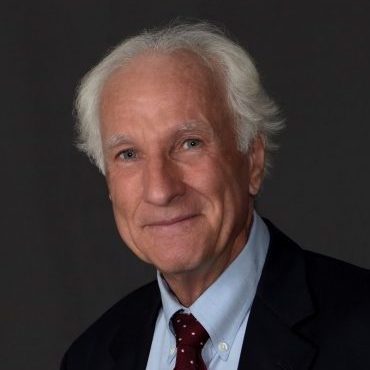“When I use a word,” Humpty Dumpty said in a rather scornful tone, “it means just what I chose it to mean- neither more nor less.” ~ Lewis Carroll

Humpty Dumpty with Alice, from “Through the Looking Glass.”
Far be it from me to criticize anyone’s skills in using a foreign language as my greatest challenge in getting out of college was the requirement to learn one. I did OK when we talked about French, Spanish or German culture and history—but those discussions were in English. The problem began when the instructor insisted that we try to talk in the other language. My brain immediately went numb. I used to sit in the very back of the class sweating bullets that the clock would finally tick down before the professor could call on me. I can still recall the terrified feeling as our German class wound down to the last 5 minutes and the kid next to me was speaking. “Please, talk slow,” I prayed. If that failed, I went to my “prevent defense” asking the professor to repeat the question as seconds slowly ticked off. When that failed, I was in deep kimchi (one foreign word I can say successfully, but that didn’t get me any points in French, Spanish or German).
Perhaps my greatest academic achievement was finding a degree that didn’t require learning a language. Otherwise, I’d be like Zonker Harris in the comic strip Doonesberry who’s been in college for 40 years. You have to wonder how much he owes in college loans by now, but that’s another story.
What brought these painful memories back was reading a story titled Russian scientists and businessmen discussed the global role of universities and technology issues. I was casually skimming through it and stumbled on this: “If universities wouldn’t take part in the generation of main priorities of the government development it’s complicate process of scientific research and training of highly skilled specialists. It’s necessary to predict situation at least on decades.”
After reading it again, it was apparent this was a comically bad translation. It reminded me of those emails we used to get from Japan years ago based on translation software which understood the thought, but not how to actually say it in English. Of course, the other possibility is that the kids who were sitting in front of me in college language class didn’t learn a foreign language either but had successfully bluffed their way through and were now employed as translators writing stuff like this for unsuspecting clients.
Realizing that I’d stumbled on a real treasure, I uncovered other gems in the article like this: “Interest in commercialization is as love in the Internet—there’s love, but there are no evidences.”
That’s like a koan in Zen Buddhism— a phrase given to the novice monastic to ponder for years until they can prove to the Master they have plumbed to the depths its nuanced wisdom. And who can argue that it doesn’t make sense — I’m always struggling to find those darn evidences on the Internet which are much tougher to locate than offers of love by a long shot.
[Joe-Allen]
This brought to mind a famous instance of a bad translation. Remember when Hillary Clinton started her term as Secretary of State by giving the Russians a button saying that it expressed her deepest feelings about them. Unfortunately, rather than saying ‘reset’ as intended, it was apparently translated into the Russian equivalent of ‘Your Momma.’ Relations haven’t been the same since.
Are many of the crises we’re facing in the world today the result of blunders by my former classmates now sowing the seeds of chaos in international affairs as translators to those in power? I thought that the guy on the stage doing the bogus deaf signing at the Mandela funeral looked vaguely familiar. Luckily, he was so bad that his act was immediately evident—although he remained on stage for the entire event. But what about the others of his ilk yet to be unmasked?
Was President Obama’s proclamation of drawing a “redline in Syria” based on an aside overheard by his translator that he’d “relish some quality time in Syracuse?” Was President Putin simply recalling the great times he had as “a KGB tyke in Korea” which some flunky botched into English as Vlad wanting to “take the Crimea” starting a whole chain of unfortunate events? Forget conspiracy theories, the real culprit could be bad translations. As someone who just speaks English, I go to sleep at night knowing that at least on that score my hands are clean.
When I was getting ready to first visit Paris I bought a phrase book. A colleague who’d just returned wisely advised me to leave it at home. She said the only phrase you need to know is “parlez vous English?” and a credit card. And that advice successfully got me through a great trip. Everyone was nice to me — but if someone made a cutting remark it just bounced off as I didn’t know the difference. Ignorance really is bliss sometimes. As it turned out I didn’t really need my one phrase of French after all — the credit card spoke for itself.
Several years ago I was visiting Turkey consulting about the US experience in technology transfer. I was asked to address the faculty at a prominent university and they had one of the professors from their English department serving as the translator. Because translation is about capturing the meaning of a sentence and turning it into understandable phrases in another language, it didn’t take more than 2 minutes to see that the poor translator was completely lost. She understood the literal words I was saying, but since she didn’t know tech transfer was unable to translate the meaning into Turkish. We quickly lost the audience as she kept stopping me to clarify each sentence. And once you have to slow down and speak like Mr. Rogers you lose your momentum—and your train of thought. Soon I didn’t understand what I was saying either.
Luckily on the rest of the trip my hosts could speak English and it was really fun. I learned to enjoy eating olives and cheese for breakfast—which I could successfully get by just pointing at what I wanted while smiling at the waiter. They didn’t raise that possibility in foreign language class for getting by abroad.
OK, now back to looking for evidences on the Internet. You can look for love there at your own peril. I sure hope no one translates that into Russian as a quote from me.

![[IPWatchdog Logo]](https://ipwatchdog.com/wp-content/themes/IPWatchdog%20-%202023/assets/images/temp/logo-small@2x.png)

![[Advertisement]](https://ipwatchdog.com/wp-content/uploads/2024/04/Patent-Litigation-Masters-2024-sidebar-early-bird-ends-Apr-21-last-chance-700x500-1.jpg)

![[Advertisement]](https://ipwatchdog.com/wp-content/uploads/2021/12/WEBINAR-336-x-280-px.png)
![[Advertisement]](https://ipwatchdog.com/wp-content/uploads/2021/12/2021-Patent-Practice-on-Demand-recorded-Feb-2021-336-x-280.jpg)
![[Advertisement]](https://ipwatchdog.com/wp-content/uploads/2021/12/Ad-4-The-Invent-Patent-System™.png)







Join the Discussion
2 comments so far.
Michael Lin
June 4, 2014 07:57 amThis article reminded me of this article I saw last week:
http://heavy.com/social/2014/05/best-funny-tattoo-hebrew-translation-fail-picture/
Joachim Martillo
June 4, 2014 07:34 amMany if not most of the international patents that are translated and then re-granted in the USA are quite incomprehensible. Why don’t the patent examiners reject them on the grounds that they should be written in something approximating English or at least US patentese?